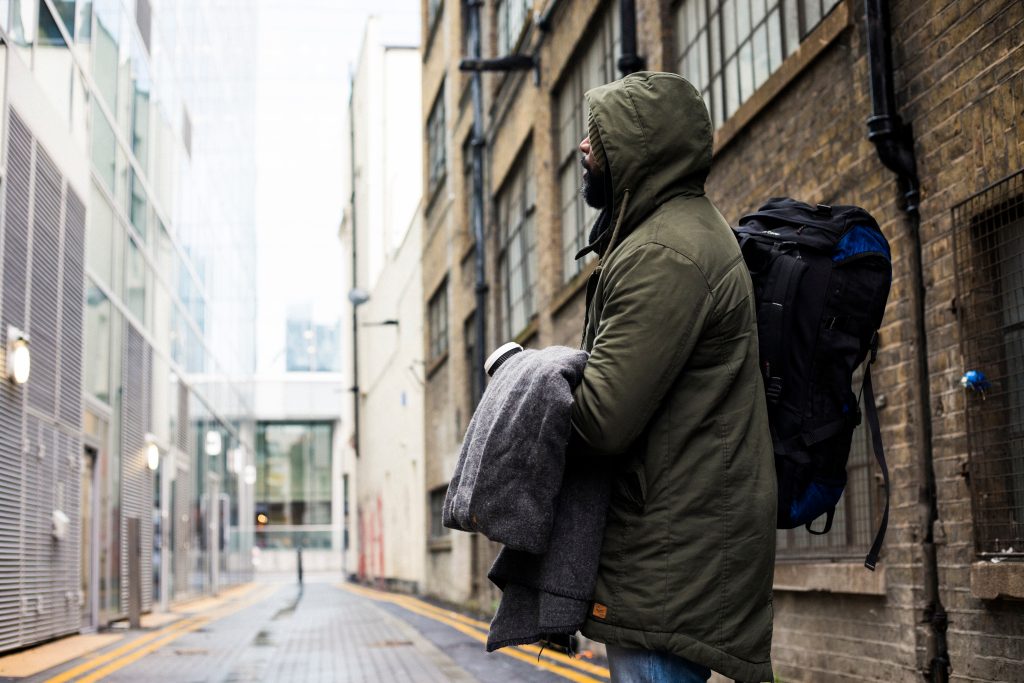Tackling homelessness is long overdue in Wales and now we have the political will to make it happen, writes Jon Sparkes
Rough sleeping is just one form of homelessness but it’s the most visible and probably the most dangerous.
As well as being at the mercy of the weather, we know that people sleeping rough consistently report feeling lonely and isolated, are 17 times more likely to be a victim of violence than the wider population, and have a much lower life expectancy. And there are many more people across Wales, trying to manage right now without the basic human need of a safe, stable home. That includes people in bed and breakfasts, sleeping on friends’ sofas, or in the temporary accommodation system without a plan to move on.
That’s the context in which the Homelessness Action Group, that I chair for the Welsh Government, completed its first report, published this week with the Welsh Government response.
This report looks at tackling rough sleeping in the short-term – this winter – and on preventing it happening altogether in the longer term. We have examined the latest evidence on what works to end rough sleeping, heard from hundreds of people with experience of homelessness or working in housing and support roles, and drawn on the formidable experience and knowledge of all 13 members of the group.
Because of this approach many of our recommendations are not brand new and parts of them have been tried before in Wales. However, I am pleased the Minister for Housing and Local Government, Julie James AM, has made clear her ambition is to end all forms of homelessness and would like the Action Group’s work to set out how this can be done across public services. In the shorter term, the Minister is implementing the recommendations for this winter and wants to return to the longer-term recommendations soon.
For this winter, the Minister has agreed to focus additional action primarily on the four local council areas across Wales where rough sleeping is highest (Wrexham, Newport, Cardiff and Swansea), while recognising that there is a huge amount of work going on across all areas to tackle homelessness and rough sleeping. It’s now for the Minister and leaders in each area to finalise the detailed approach and agree the outcomes in terms of people helped away from the street in the short term.
The Action Group recommended that each area ensures it has:
- An ‘assertive outreach’ approach, where people are helped away from the street as quickly as possible by workers who are persistent, sensitive to the trauma people sleeping rough have experienced, and focused on getting people housed with support if they need it.
- A dedicated role or set of roles to bring together public and support agencies with daily meetings between council services, health services, police and others to agree the exact support that people need.
- The outreach workers empowered with ‘personal budgets’, which are small amounts of money to help people immediately, to establish trust and start helping people away from the street for good.
- Local councils to take a very flexible approach to the law, treating people sleeping rough as a highest priority, and supporting people however they happened to become homeless and regardless of whether they have a ‘local connection’ to the area or not.
We know that members of the public want to help but are not clear what actions would be most helpful, so we’ve also recommended a national communications campaign in the run-up to the winter, which can describe the ways that the public can take action, both to help individuals and to help bring about changes in policy and approaches locally or nationally. This builds on successful campaigns recently like Play Your Part.
This is just the first and very short-term part of the Action Group’s answers to a range of questions the Minister, has asked us to look at. The first report looks at the crisis point of people already rough sleeping and how to prevent rough sleeping altogether. This would mean, for example, ensuring people discharged from hospitals, prisons or the care system go straight into appropriate accommodation.
Our subsequent Action Group work will go even further back again, with recommendations to make sure people in insecure housing – at risk of homelessness in the future – have the help they need to avoid homelessness altogether.
The ultimate goal is to make sure that homelessness only happens very rarely, that when it does happen it is very brief, and that it never happens more than once:
- Rare: we prevent people at risk of losing their home from losing it in the first place.
- Brief: public services respond quickly to help people who do lose their home.
- Non-recurring: housing people properly with the support they need means that homelessness is a one-off for them.
Watching the Minister’s statement last week I was encouraged to hear opposition spokespeople and shadow ministers in the Senedd agree with this goal. The short-term actions that will happen this winter are the first step towards broader changes and getting political will behind ending homelessness will give it the priority it needs. We need to ensure everyone has their basic need for a home and support met and, if we take the right steps, this can be done.
All articles published on Click on Wales are subject to IWA’s disclaimer.





